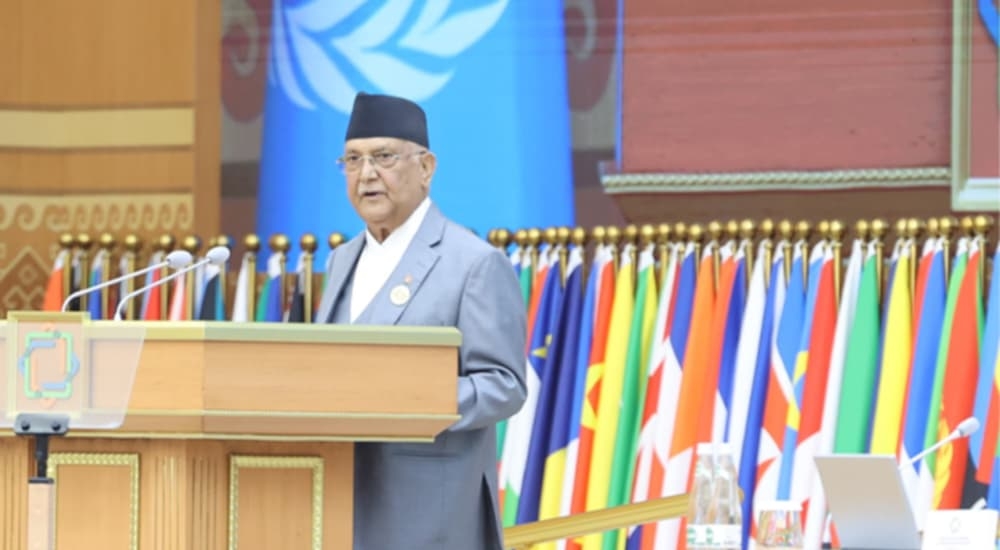

AWAZA: Prime Minister KP Sharma Oli has called upon the international community to address the structural barriers faced by landlocked developing countries (LLDCs), emphasizing that their isolation is not a matter of choice but compulsion.
Delivering Nepal’s national statement at the plenary session of the Third United Nations Conference on LLDCs in Awaza, Turkmenistan, PM Oli stressed that connectivity is a matter of justice, not charity.
“The key lies with coastal nations. Opening it is a duty, not an act of grace,” Oli said. He urged global leaders to transform barriers into innovations and make connectivity the driving engine of shared prosperity.
Highlighting the specific challenges faced by LLDCs in trade, infrastructure, and achieving the Sustainable Development Goals (SDGs), PM Oli underlined Nepal’s commitment to regional integration and trade facilitation, while calling for special international support measures.
Bishnu Rimal, Chief Advisor to the Prime Minister, echoed Oli’s remarks in a Facebook post, stating, “Landlocked nations are isolated out of necessity, not by option.”
Rimal emphasized that PM Oli’s message was a strong reminder that the burden of landlockedness should not be borne solely by the affected countries.
Nepal currently chairs the LLDC group, giving PM Oli a key platform to advocate for the interests of the 32 landlocked developing nations participating in the conference.
Earlier, PM Oli had attended the inaugural session of the LLDC conference, which aims to address critical challenges related to connectivity, trade, and sustainable development for countries without direct sea access.
Global leaders in the opening session stressed the need for enhanced international cooperation to eliminate structural barriers, reduce transport costs, and promote inclusive economic growth.
The conference serves as a forum to review progress under the Vienna Program of Action and to adopt a new action plan for the next decade.